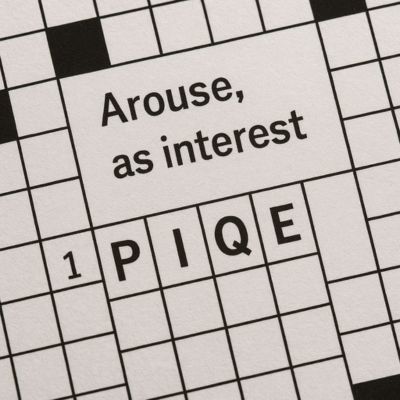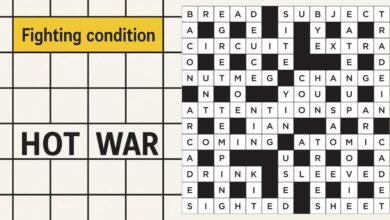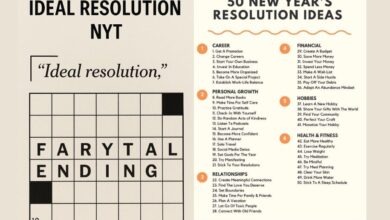Arouse as Interest NYT — Understanding the Popular Crossword Clue “PIQUE”

Every day, millions of crossword enthusiasts tackle the daily puzzles from The New York Times (NYT). Among the clever wordplay and tricky definitions, certain clues tend to recur more than others — one of the most intriguing being “Arouse, as interest.” It may look simple at first glance, yet it often stumps even seasoned solvers. The answer that perfectly fits this clue, most notably in the NYT Mini Crossword, is PIQUE.
This article takes a deep dive into what “arouse as interest NYT” means, its linguistic roots, crossword appearances, and the nuances that make PIQUE such a fascinating answer. We will also explore why this clue continues to appear so frequently, what makes it a crossword favorite, and how understanding clues like this can help boost one’s puzzle-solving skills.
1. The Crossword Connection: Why “Arouse as Interest” Matters
Crosswords are a subtle art form — each clue must fit not only semantically but also logically within a grid. “Arouse, as interest” is a classic example of what crossword constructors love to include: a clue that sounds straightforward but demands linguistic precision.
When solvers encounter this clue in the NYT Mini or Daily Crossword, they often guess words like STIR, SPUR, or ENGAGE. While those options sometimes fit in other puzzles, the most consistent and correct answer in the NYT is PIQUE.
The charm of this clue lies in its play on everyday language. The phrase “to pique someone’s interest” is common, but many people use it without realizing what pique really means. Crosswords, therefore, serve not only as puzzles but also as subtle language lessons.
2. The Word Behind the Clue: Understanding “PIQUE”
The word pique originates from French, where it literally means to prick or sting. Over time, its meaning evolved in English to describe something that stimulates or provokes a reaction, whether emotional, intellectual, or physical.
When we say “The article piqued my interest,” we mean that it stirred curiosity or awakened enthusiasm. Interestingly, pique can also mean to offend or irritate someone, as in “He was piqued by the criticism.” This double meaning gives the word an edge — it reflects how curiosity and irritation often go hand in hand in human behavior.
In crossword construction, this kind of layered meaning makes pique a goldmine for wordsmiths. It’s short (five letters), versatile, and rich in definition — the perfect candidate for clues involving emotional or intellectual stimulation.
3. NYT Crossword Appearances and Context
The clue “Arouse, as interest” has appeared several times in The New York Times’ crossword archives. It’s particularly common in the Mini Crossword, where concise clues are necessary. According to several crossword-tracking databases, this clue last appeared on November 14, 2024, in the NYT Mini puzzle, where the answer was again PIQUE.
But this clue is not unique to the NYT. Many crossword platforms — from USA Today to LA Times and The Guardian — have used similar clues. Variations include:
- “Arouse curiosity”
- “Stir up interest”
- “Engage emotionally”
- “Arouse resentment or curiosity”
Each version leads solvers toward PIQUE or its cousins (STIR, KINDLE, TITILLATE), depending on the puzzle’s length and structure.
In this sense, PIQUE has become a sort of linguistic signature in crossword culture — instantly recognizable, frequently reused, and consistently satisfying when discovered.
4. The Psychology Behind “Arouse, as Interest”
At its core, the clue “Arouse, as interest” taps into one of the most basic human drives: curiosity. Our minds are wired to seek patterns, uncover secrets, and resolve tension. That’s exactly what a good crossword clue does — it piques our intellectual curiosity.
Psychologically, this clue works on two levels:
- Literal — it asks for a word meaning “arouse interest.”
- Metaphorical — the solver’s own interest is aroused while attempting to decode it.
This duality is part of what makes crosswords so addictive. Each clue gives a tiny dopamine rush when solved — a miniature reward for insight. The word pique, therefore, mirrors the very process it describes.
5. Language Evolution: From “Pique” to “Peak” Confusion
One of the reasons PIQUE puzzles people is its frequent confusion with peak and peek. These three homophones are spelled differently but sound nearly identical:
- Peek – to glance or look quickly.
- Peak – the top or highest point.
- Pique – to stimulate or provoke.
Because of this similarity, even native English speakers often mistakenly write “peak your interest” instead of “pique your interest.” Crosswords help reinforce the correct usage through repetition and pattern recognition. Every time solvers fill PIQUE into the grid, they reinforce a bit of linguistic accuracy.
6. Why Crossword Constructors Love the Word
Editors and puzzle creators choose words like pique for practical and aesthetic reasons. It checks several boxes:
- Length: 5 letters — ideal for symmetrical grids.
- Phonetic appeal: Sounds elegant and refined.
- Cultural familiarity: Common in both literature and journalism.
- Semantic depth: Carries both positive and negative connotations (interest, offense, irritation).
In short, pique is what puzzle creators call a “utility word” — flexible enough to appear in multiple contexts, yet sophisticated enough to challenge solvers.
7. Common Alternatives in Crossword Contexts
Although pique is dominant, crossword solvers may occasionally see alternate answers when the clue’s structure changes slightly. Examples include:
- STIR – often used when the clue is “Arouse interest (4).”
- KINDLE – when the clue is “Arouse interest or passion (6).”
- TITILLATE – used for “Arouse interest or excitement (9).”
- ENGAGE – for “Draw in or arouse interest (6).”
However, when the exact phrasing is “Arouse, as interest,” PIQUE remains the preferred and most accurate answer — especially within NYT puzzles.
8. The Role of NYT Mini Crosswords in Popularizing Language
The NYT Mini Crossword, launched as a bite-sized version of the traditional grid, plays a huge role in shaping modern crossword culture. Short, daily, and accessible via mobile, it has attracted a younger audience and introduced many to vocabulary they might never encounter elsewhere.
Clues like “Arouse, as interest” highlight how Mini Crosswords combine education and entertainment. Solvers often end up looking up the meaning of pique afterward, thus reinforcing vocabulary expansion. For many, that’s part of the fun — each puzzle becomes a micro-lesson in language, logic, and cultural literacy.
9. Crossword Culture: Why People Obsess Over Tiny Clues
In crossword culture, certain clues take on a legendary status. “Arouse, as interest” is one of those timeless entries that continues to make the rounds because it represents what puzzles are about: curiosity, wordplay, and revelation.
Blogs and forums dedicated to NYT crosswords often discuss such clues in detail. Enthusiasts share how long it took them to recall PIQUE, joke about misremembering it as PEAK, and even create memes about overused clues. Yet, every time it appears, it brings a moment of recognition and satisfaction — a linguistic “aha” moment shared across generations of solvers.
10. How to Approach Clues Like “Arouse, as Interest”
For crossword beginners, the key to solving this type of clue lies in recognizing idiomatic phrases. When you see “arouse interest,” immediately think of common expressions such as “pique interest.” Learning these fixed word pairs (collocations) is essential.
Here’s a simple solver’s tip:
- Identify the part of speech — here, it’s a verb.
- Think of synonyms for “arouse” — stir, spark, excite, awaken.
- Test them mentally in the phrase “___ interest.”
- The one that sounds natural — “pique interest” — is your winner.
This reasoning process is what crossword enthusiasts develop instinctively over time.
11. The Broader Linguistic Lesson
Crossword clues like this one remind us of the subtle beauty of English. A single word like pique can carry centuries of linguistic evolution — from medieval French roots to modern idioms. It also shows how puzzles act as a mirror of culture and communication, reflecting the way words shape our curiosity and understanding.
Language is not static. Every time the NYT or any crossword reuses this clue, it keeps the word alive, ensuring that expressions like “pique interest” remain part of our collective vocabulary.
12. The Enduring Appeal of “Arouse as Interest NYT”
Whether you’re a word enthusiast, linguist, or casual puzzle-solver, clues like “Arouse, as interest” show how deeply crosswords intertwine with language learning. The NYT crossword, renowned for its balance of challenge and elegance, continues to use such clues as a way to keep solvers mentally agile and linguistically aware.
Every appearance of PIQUE is not just an answer — it’s a reminder that curiosity itself is what drives both puzzles and people.
In the world of crosswords, to be piqued is to be alive, attentive, and endlessly curious. And perhaps, that’s the true meaning of “arouse, as interest.”
Final Note
Language, curiosity, and culture come together in one five-letter word — PIQUE. The clue “Arouse, as interest” may look ordinary, but its answer encapsulates centuries of linguistic history and the timeless joy of problem-solving. Next time it appears in your NYT crossword, take a moment to appreciate the craft behind it.
Article written for the blog site Newsta.



